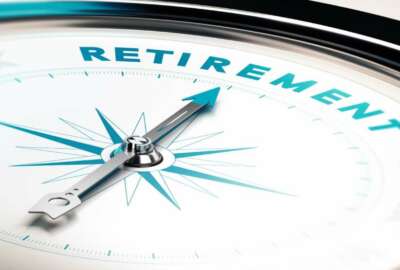Hubbard Radio Washington DC, LLC. All rights reserved. This website is not intended for users located within the European Economic Area.
On Air: Federal News Network
Trending:
How to avoid needing to work after retirement
Retirement is supposed to mean you don't work any more or at least only work because you want to. Most people wonder, how much income is enough for me to retire...
Retirement is supposed to mean you don’t work any more or at least only work because you want to. Most people wonder, how much income is enough for me to retire? For some answers, the Federal Drive with Tom Temin spoke with federal retiree Abe Grungold of AG Financial Services.
Interview Transcript:
Tom Temin And I mean how much you need, depends on a lot of things, doesn’t it, Abe?
Abe Grungold It really does. It varies from person to person and whether you’re married a single. But it’s funny, even when I’ve been retired now for two years, my wife will still ask me, do we have enough money to retire on? And really, the goal for every individual should be at a minimum 80% of your pre-retirement income, so it should be 80% of your gross. That is a good number to start with.
Tom Temin Yeah. So that means the type of life you can have in retirement is unless you’re really, really good at investing and saving, will be in some relation to how you lived while you were working.
Abe Grungold Exactly. You know, if you can pay your bills now based on your salary, and you should be able to pay your bills in retirement. Now, it’s also important. It also depends on your lifestyle, because when we retire, we spend more. And a big factor is your health. The other factor that you really have to consider is how much debt are you going to carry with you into retirement? And that’s crucial.
Tom Temin Maybe it’s more crucial how much debt you’re willing to carry into the grave, because then you don’t have to worry about it anymore.
Abe Grungold Yes. Unfortunately, a lot of people like to buy large ticket items when they retire, a retirement home, motorcycle.
Tom Temin Now you’re talking.
Abe Grungold A boat. That’s fine. That’s great. It’s wonderful. But you have to make sure that is within your budget. And you should be starting your budget for retirement five years prior to retiring. You should get in the habit of seeing on a monthly basis, how much are you making? How much are you spending, and will you have enough income in retirement? And these numbers, these income numbers would be coming from your first annuity. It’d be coming from Social Security, your thrift saving plan, your personal savings. And if you want to, employment in retirement.
Tom Temin Right. Some people choose to do some work in retirement, but it should be something you choose to do. Maybe not something you have to do.
Abe Grungold People. It’s very important in retirement to be active both mentally and physically. And a lot of, federal retirees do a part time job in retirement just to keep them active mentally and physically. Now, I know a lot of people, a lot of coworkers, clients of mine who had a desk job in the government, they don’t want to be sitting at a desk in retirement. They want to do something physically active, and a great job is a school crossing guard. It’s a part time job. You’re out there physically walking around, you’re doing something good for the community, and you’re also earning some part time income. So, these are important things for a lot of retirees to do.
Tom Temin Yeah, for that matter, even if the income is slight, you could probably volunteer in jobs similar to that.
Abe Grungold Yeah. For those retirees who really do not have to worry about their financial income, volunteering is very important. I do a lot of volunteering, in addition to my business. And it really, helps me feel good about myself. And it’s an excellent way to give back to the community. It’s a great way.
Tom Temin Well, you’re definitely the type of person I would want to referee my pickleball tournament.
Abe Grungold I would be more than feared, Tom. I’d be more than feared, but I don’t know. My eyesight is not as good as it once was.
Tom Temin Well, my pickleball is not existent at all. I’ve never touched one. And getting back to that budget idea of doing a detailed budget over a period of time can also maybe show up areas where you could probably cut back a little bit without really harming your lifestyle.
Abe Grungold Yes, there are many ways that you can cut back. You know, you have to really think about your spending. Like if you still have cable, maybe you ought to think about doing some, streaming services which are much less than the cable service. If you have a home telephone, maybe it’s something you don’t need anymore. In retirement, you can just rely on your cell phone. You have to take a look at your insurance, auto insurance, life insurance, and see whether it’s a good idea to shop around. These are great ways to save an extra few hundred dollars here and there, and they add up quickly. They do.
Tom Temin We’re speaking with Abe Grungold. He’s retired federal manager himself and owner of AG Financial Services out of Florida. And you said start thinking about this five years in advance. I mean, most people probably don’t think about it until about six months to go. And they wake up and say, Holy, jumping Jehoshaphat. What am I going to do here?
Abe Grungold Yeah. It’s really you should be thinking about it five years ahead of time. You should be looking to see where that retirement income stream is going to come from, what your expenses are going to look like in retirement. And you really need to focus on this five years ahead of time and have a good plan going into retirement. Now. The thing that’s also very important when you are calculating these numbers are what I call the unknown factors, when you retire. The unknown factors are health care, long term care, grandchildren and inflation. So if you want to provide for your grandchildren, where is that money going to come in your budget? If you know you have to deal with health care issues and we most people do when they retire, you have to have an emergency fund to handle medicines, medical procedures. And you have to always think about inflation. And the other factor, which everyone may or may not have to deal with is long term care. And that is very expensive. That can be anywhere from 75 to well over $100,000 a year to be in a nursing home. Very expensive situation right now.
Tom Temin If you have any assets whatsoever above a couple of thousand bucks or something beyond your home, then you will not be eligible for Medicaid, God forbid, which will cover a nursing home. It’s basically the provider of last resort.
Abe Grungold Yes, the Medicaid. In order to qualify for Medicaid, you really have to be in a low-income situation. And when you go to a nursing home, they’re going to want a very detailed listing of all your assets, and they want to be sure that you can pay the nursing home bills, whether they’re going to come from your personal savings, from your TSP, or whether you’re going to be a Medicaid eligible, resident. So, you really have to think about all these things ahead of time.
Tom Temin Right, and for purposes of Medicaid, you can’t say, oh, gosh, I’m going to give away everything to the grandkids now and then a month later, become on Medicaid because they have a five year, I believe it is lookback, right?
Abe Grungold Yes, they definitely have that five year look back and they will carefully look at all those things. State has a lot of resources where they can look to see when you transferred your house to your children and when you transfer, your assets to your children. Now, that situation did happen with my old parents. They did it 20 years prior to them going into a nursing home. And both my parents did end up at the nursing home. So that situation was taken care of long before. And it was something that they thought of. It wasn’t something that I approached them with. So, you know, you really have to think of these things that unfortunately, that you do.
Tom Temin And you also have to plan not only for your health care costs, but also for your minimum required withdrawal from your TSP. Now, they keep moving the goalposts on when that has to occur. I think it’s now, if I’m correct, 72 or 72.5 years old. Congress moved it up.
Abe Grungold Yes, the age is going to change over the next few years depending on how old you are. It could be 73 and a few years later it could be even a higher age. But yes, you do have to make required minimum distributions. Now the TSP is going to help you make those required minimum distributions. And if you have your money sitting in a company like Fidelity or Charles Schwab, they also will help you to figure out what those numbers are. Basically, they’re about 3% of your total balance. So, if you have a traditional I.R.A., a traditional TSP, it will be about 3% of your balance. So yes. And so, they will have to come out.
Tom Temin And that’s the number that you plug into your monthly income. Is that roughly 3% of your balance. And that’s going to vary depending on the market and so on. And what about tax planning. Because that’s another bugaboo that people sometimes overlook. You’re going to be in a different income bracket perhaps, and you’ll have different deductions and so on.
Abe Grungold Well, Tom, you know, what I always tell everyone is I don’t mind paying taxes because if I’m paying taxes, I’m financially doing very well. But yes, when you retire as a federal retiree, you should be in a lower income tax bracket. And you need to plan for taxes by diverting your funds where you can avoid paying taxes on money that’s sitting in the bank. You could buy savings bonds you can to other measures to avoid paying taxes. But you do have to pay taxes. You could be in a tax bracket of anywhere from 15% all the way up to 30%. And I honestly don’t mind paying taxes because I know financially I am doing better than, a lot of people out there and I don’t mind paying my taxes.
Tom Temin Of course, you didn’t stay in new Jersey or New York. I mean, you are in Florida, so people like paying taxes, but they like buying. They like paying less than paying more if it’s if they have that option.
Abe Grungold Well, that’s good tax planning on my part. Yeah. I do avoid the state income tax in Florida. And there are a number of states across the U.S. where you do not have to pay state income tax and federal retirees do move to those states, and that it’s just part of tax planning. But unfortunately, a lot of people can’t move away from their families. So, I have many neighbors who live here in Florida. They’ve been here 1 or 2 years, and now they’re moving back up north because they can’t be away from their family. So that is a decision that you have to make. What’s more important, your family and friends or tax planning.
Tom Temin Or whether you can afford a fractional Learjet and go back and forth any time you want.
Abe Grungold That’s true. That is true. But, you know, snowbirds, it’s a difficult situation today because snowbirds have to maintain two properties. And that is a very expensive undertaking in retirement. That is something you have to plan for five years prior to retiring. Can you afford to carry two properties? And it’s a difficult, scenario.
Tom Temin All right. So, the main message then is plan. Plan for health care, plan for tax planning. Plan for gifts and plan for your own income and your own way of life.
Abe Grungold There’s an old expression time. Proper planning prevents poor performance. And if you are planning your retirement income and expenses and the unknowns prior to retirement, you’re going to have, an excellent retirement, you’re going to have very little stress and you’re going to be able to enjoy yourself. And yeah, planning is the key.
Copyright © 2024 Federal News Network. All rights reserved. This website is not intended for users located within the European Economic Area.
Tom Temin
Tom Temin is host of the Federal Drive and has been providing insight on federal technology and management issues for more than 30 years.
Follow @tteminWFED





